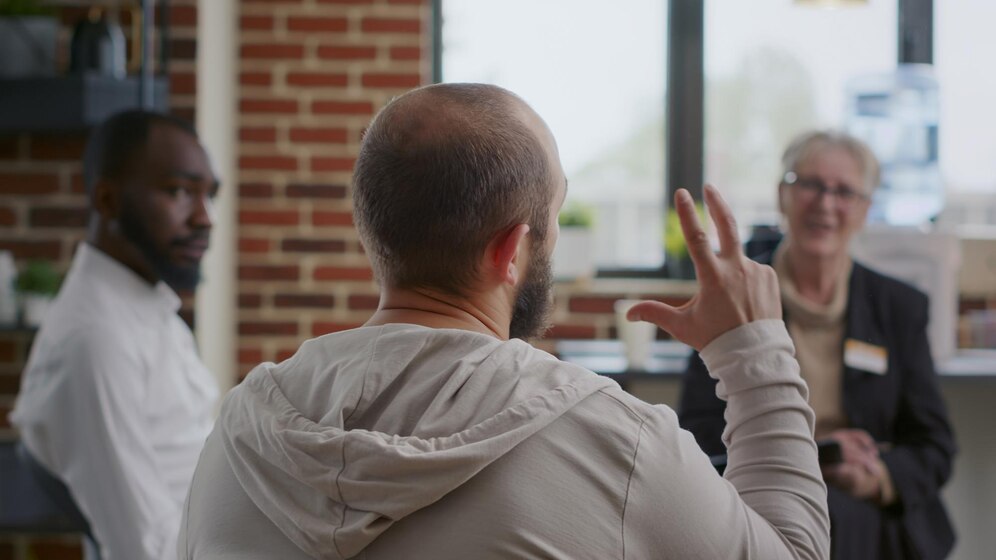Achieving long-term recovery from substance abuse is a challenging but attainable goal. It involves more than just completing a treatment program; it requires ongoing effort, commitment, and the development of effective strategies to prevent relapse. This guide explores key elements of long-term recovery and provides practical advice for maintaining sobriety and preventing relapse.
Understanding the Relapse Cycle: How It Affects Recovery
The relapse cycle is a critical concept in addiction recovery, reflecting how individuals may return to substance use after a period of abstinence. This cycle often starts with the buildup of stress or triggers that lead to cravings and, eventually, a lapse in sobriety. Understanding this cycle helps individuals recognize the warning signs and implement strategies to break the cycle before it leads to full relapse.
Recognizing the patterns and stages of relapse is crucial for developing effective prevention strategies. By understanding how these cycles operate, individuals can better prepare themselves to handle triggers and stressful situations, thus reinforcing their commitment to recovery and reducing the risk of relapse.
Key Components of Long-Term Recovery Success
Long-term recovery success involves several key components, including consistent self-care, ongoing therapy, and the development of a strong support network. Successful recovery is not just about abstaining from substance use but also about creating a fulfilling and balanced life. This involves setting and achieving personal goals, maintaining a healthy lifestyle, and continuously working on personal growth.
Additionally, understanding and addressing the root causes of addiction, such as underlying mental health issues or trauma, is essential for long-term success. By focusing on holistic recovery and addressing all aspects of well-being, individuals can build a solid foundation for sustained sobriety.
Developing a Personalized Relapse Prevention Plan
A personalized relapse prevention plan is a vital tool for maintaining long-term recovery. This plan should be tailored to the individual’s specific needs, triggers, and risk factors. It typically includes identifying personal triggers, developing coping strategies, and creating a plan for managing high-risk situations.
The plan should also outline steps for seeking help when needed, including contact information for therapists, support groups, and emergency resources. Regularly reviewing and updating the plan ensures it remains relevant and effective in addressing new challenges that may arise during the recovery journey.
The Role of Ongoing Therapy and Counseling
Ongoing therapy and counseling play a crucial role in long-term recovery. Regular therapy sessions provide individuals with the opportunity to explore their thoughts and feelings, address any emerging issues, and reinforce their commitment to sobriety. Counseling can also help individuals develop new coping skills, improve emotional regulation, and maintain motivation for recovery.
Different types of therapy, such as Cognitive Behavioral Therapy (CBT) and Dialectical Behavior Therapy (DBT), offer various benefits depending on individual needs. Ongoing therapy ensures that individuals receive the support necessary to navigate the complexities of recovery and maintain their progress over time.
Building and Maintaining a Strong Support System
A strong support system is essential for long-term recovery. This system includes family, friends, support groups, and peers who provide encouragement, accountability, and understanding. Building and maintaining these relationships help individuals feel connected and supported, which is crucial for sustained sobriety.
Participating in support groups, such as Alcoholics Anonymous (AA) or Narcotics Anonymous (NA), offers additional benefits. These groups provide a community of individuals who share similar experiences and challenges, offering mutual support and encouragement throughout the recovery process.
Strategies for Managing Triggers and High-Risk Situations
Managing triggers and high-risk situations is a key aspect of relapse prevention. Triggers can include environmental factors, emotional stressors, or social situations that may prompt cravings or thoughts of substance use. Developing strategies to handle these triggers effectively helps individuals stay on track with their recovery goals.
Common strategies include avoiding high-risk situations, practicing mindfulness and stress management techniques, and using coping skills learned during treatment. Being prepared with a plan to address potential triggers can significantly reduce the risk of relapse and support long-term recovery.

The Importance of Self-Care and Healthy Lifestyle Choices
Self-care and healthy lifestyle choices are fundamental to maintaining long-term recovery. This includes adopting a balanced diet, engaging in regular physical activity, and ensuring adequate rest. Self-care practices help individuals manage stress, improve overall well-being, and reduce the likelihood of relapse.
Healthy lifestyle choices also involve avoiding environments or activities that may pose a risk to sobriety. By prioritizing self-care and making positive lifestyle changes, individuals can support their recovery and enhance their overall quality of life.
Using Mindfulness and Stress Management Techniques
Mindfulness and stress management techniques are valuable tools for supporting recovery. Mindfulness practices, such as meditation and deep breathing exercises, help individuals stay present and manage their thoughts and emotions effectively. These techniques can reduce stress and anxiety, which are common triggers for relapse.
Incorporating stress management techniques into daily routines helps individuals cope with challenges and maintain a sense of balance. By practicing mindfulness and managing stress, individuals can improve their emotional resilience and support their long-term recovery efforts.
The Role of Support Groups and Peer Networks
Support groups and peer networks play a significant role in recovery by providing a sense of community and shared experience. Engaging with others who have faced similar challenges offers emotional support, encouragement, and practical advice for maintaining sobriety.
Support groups provide a structured environment where individuals can discuss their experiences, share coping strategies, and receive feedback from peers. Building connections within these networks reinforces a sense of belonging and strengthens the commitment to recovery.
Monitoring Your Recovery Progress and Adjusting Strategies
Monitoring recovery progress and adjusting strategies as needed is crucial for long-term success. Regularly assessing progress helps individuals identify areas of strength and areas that may require additional attention. This process involves tracking achievements, reflecting on challenges, and making necessary adjustments to the relapse prevention plan.
Setting and reviewing short-term and long-term goals can provide motivation and direction throughout the recovery journey. By staying proactive and adaptable, individuals can address emerging issues and continue to make positive strides in their recovery.
Creating a Structured Daily Routine to Support Recovery
A structured daily routine provides stability and support for long-term recovery. Establishing a routine that includes regular activities, such as work, exercise, and leisure, helps individuals maintain focus and avoid boredom or idle time, which can be triggers for relapse.
Incorporating healthy habits into the routine, such as meal planning, exercise, and self-care activities, supports overall well-being and reinforces the commitment to sobriety. A structured routine also helps individuals develop a sense of purpose and balance, contributing to long-term recovery success.
Committing to Long-Term Recovery and Relapse Prevention
Long-term recovery and relapse prevention require ongoing effort, self-awareness, and a commitment to personal growth. By understanding the relapse cycle, developing a personalized prevention plan, and utilizing various strategies and support systems, individuals can build a strong foundation for lasting sobriety. For additional guidance and support on your recovery journey, contact us today. We are here to help you strengthen your recovery and achieve your long-term goals.
FAQs
What is the importance of long-term recovery and relapse prevention? Long-term recovery involves maintaining sobriety and addressing the underlying causes of addiction. Relapse prevention strategies help individuals identify and manage triggers, develop coping mechanisms, and build a strong support network.
What are the key components of long-term recovery and relapse prevention? Effective long-term recovery includes ongoing therapy, support groups, healthy lifestyle habits, and a strong support network.
How can I develop a personalized relapse prevention plan? Identify your triggers, develop coping strategies, and establish a support network tailored to your individual needs.
What role does therapy play in long-term recovery and relapse prevention? Therapy can help individuals address underlying issues, develop coping skills, and maintain motivation throughout their recovery journey.
How can I build a strong support network for long-term recovery and relapse prevention? Connect with peers, family, and friends who can provide support, encouragement, and accountability. Consider joining support groups or seeking professional guidance.
What are some healthy lifestyle habits that can support long-term recovery and relapse prevention? Prioritize exercise, nutrition, adequate sleep, and stress management techniques.
How can I manage cravings and urges during long-term recovery? Develop healthy coping mechanisms, engage in distracting activities, and reach out to your support network for assistance.
What are the benefits of attending support groups for long-term recovery and relapse prevention? Support groups provide a sense of community, encouragement, and accountability. They offer a safe space to share experiences and learn from others.
How can I continue to grow and develop as an individual in long-term recovery? Set personal goals, pursue hobbies, and engage in activities that promote personal growth and well-being.
What challenges may I face in long-term recovery and how can I overcome them? Challenges may include boredom, loneliness, or stress. Develop coping strategies, seek support, and focus on your recovery goals.








